On the afternoon of March 15, the sixth session of Xinya Collective Talks, entitled "Study Tour Without Thought Is Labor Lost", was held on the first floor of Xinya College. The session brought together teachers and students to reminisce about their winter study tours. The activity commenced with remarks from Mei Ciqi, who emphasized the guiding principle that "Study Tour Without Thought Is Labor Lost". The notion draws from the adage "Learning without thought is labor lost; thought without learning is perilous". He stressed that the practice of study tours represents a process of rediscovering the world and oneself. The dialogue following such educational journeys is a process of distilling thoughts through language, and the conversation with peers can spark the development of ideas that are still in the nascent stages.
Mr. Jiao Yang of the Future Laboratory resonated strongly with Mr. Mei's remarks. Mr. Jiao enjoyed his first experience of spending an extended period with his students, as the leader of the Italy Team instead of a class teacher or lecturer. Members of the team spent a lot of time in museums, experiencing the art and culture of Italy through immersive learning and experiences. Mr. Jiao stated, "Despite being familiar with numerous works in our daily teaching, the immersive experiences are something that textbooks simply cannot bring. The opportunity for hands-on learning and observation is what truly defines the value of study tours."
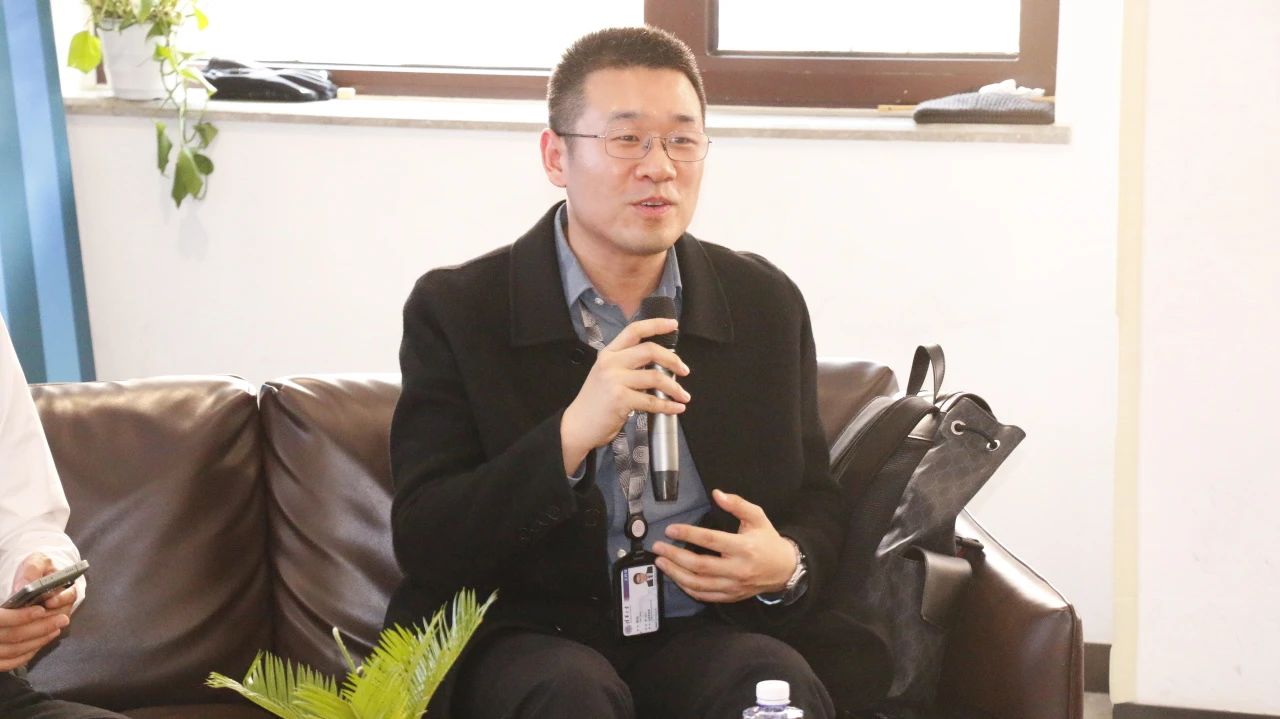
Jiao Yang
The Greece Team was headed by Zhang Kaiping, a teacher at the School of Social Sciences. Mr. Zhang said: "There's a common adage that goes, 'In order to attain wisdom, it is not enough merely to read books, you must be well traveled as well.' This idiom stresses that it is through the application of knowledge gained from books that we truly understand its significance to our personal development. Our study tour has reached its conclusion, yet the new insights we've gained will remain indelibly etched in our minds, enhancing our understanding of the world. The enduring impact of these experiences is among the most significant benefits of study tours."
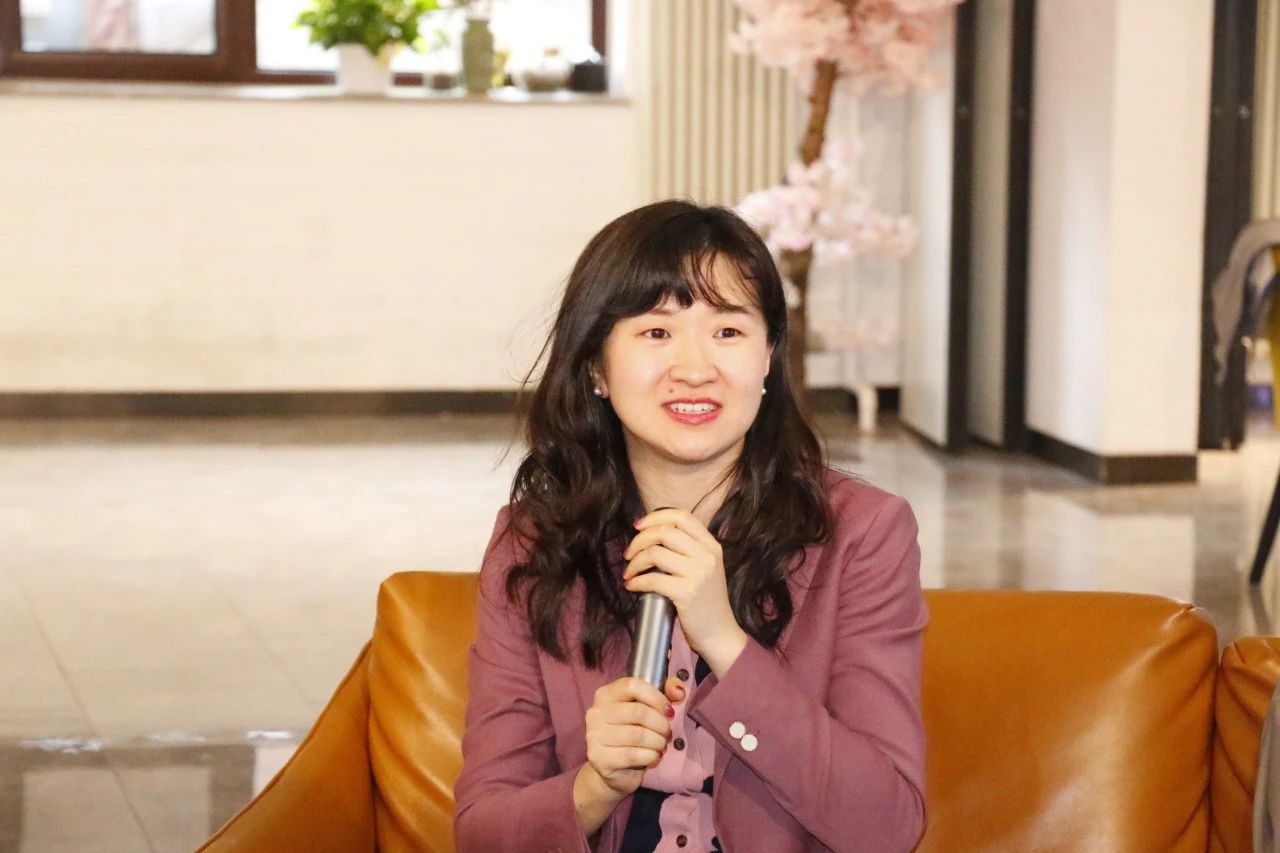
Zhang Kaiping
Mr. Li Zhen from Xinya College led more than 30 students to visit Tokyo and Kyoto in Japan, including the University of Tokyo and Kyoto University. The East Asian Academy for New Liberal Arts at the University of Tokyo also promotes general education. "We seem to have found a similar version of Xinya beyond the borders of China." It's as if we've "stumbled upon old friends in unfamiliar lands". In addition, the Yoshida Dormitory system of Kyoto University, which operates with complete student autonomy, serves as a model for boarding colleges. The visit to the Tokyo National Museum stirred deep emotions within Mr. Li. Observing China's cultural treasures on foreign soil filled him with sadness and reinforced his conviction in the importance of going out to see the world. "Only by exploring the world can we gain a holistic grasp of history."
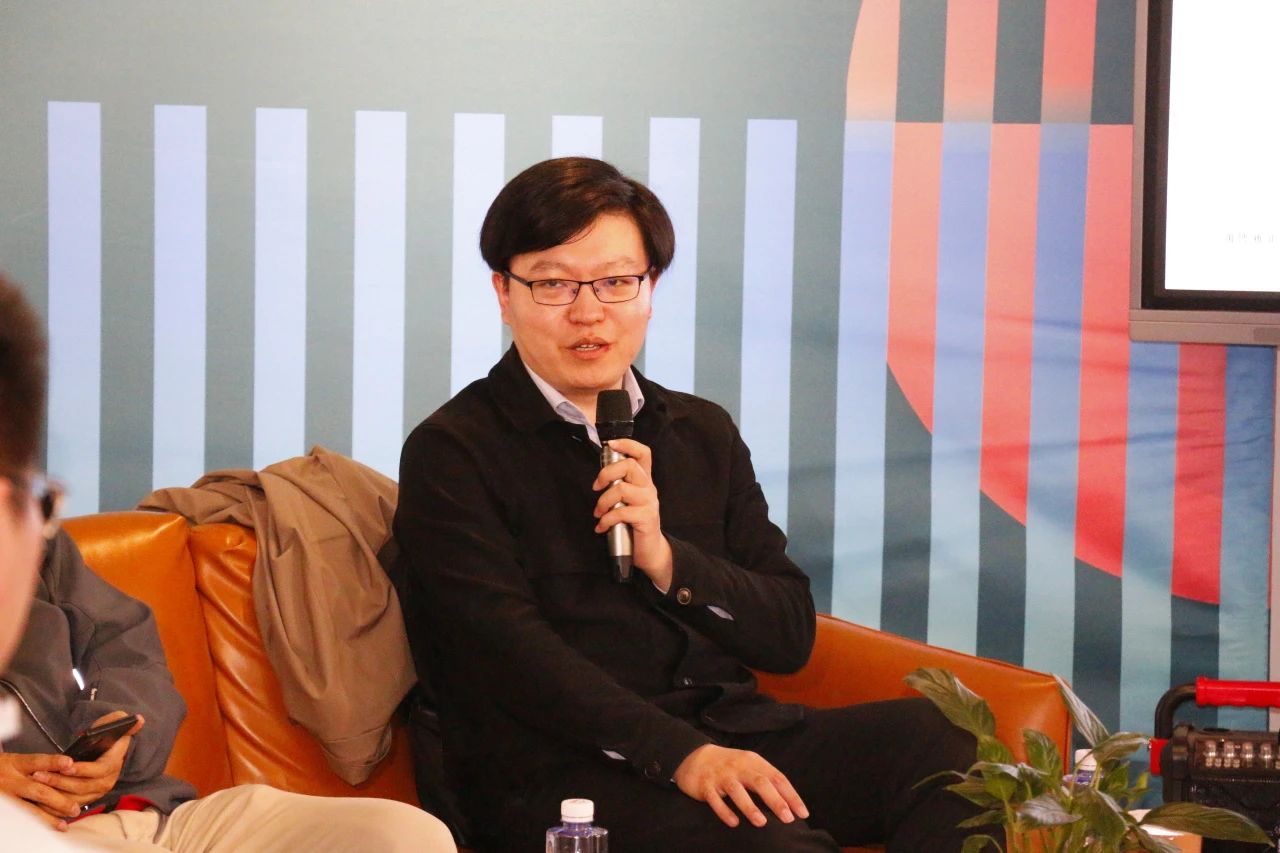
Li Zhen
Chen Weihao, a counselor and the leader of the Southeast Asia Team, also remarked on discovering "a similar version of Xinya" during their visit to the Nanyang Technological University (NTU). He elaborated by saying, "We visited the NTU-University Scholars Programme, which is also an interdisciplinary initiative. Within this program, students across various disciplines participate in shared general education courses." "Many universities worldwide are striving to dismantle discipline barriers and liberate the process of student cultivation from the constraints of traditional departmental structures." During their time in Indonesia, Mr. Chen and his students also toured the Tsinghua Southeast Asia Center and the Tourism Confucius Institute in Bali. Mr. Chen found that his interactions with local students at the Confucius Institute were highly inspirational. He reflected, "Beyond what was shared in the formal exchange session, there's a wealth of diverse perspectives. Without proactive effort to engage, one might miss the chance to gain these valuable insights."
He Runqi, a student from the Japan Team, mentioned the importance of engaging with locals: "There are many beautiful buildings and relics in Japan. However, truly understanding the history behind a relic requires more than mere knowledge. It is crucial to acquaint oneself with the people connected to this historical treasure." Moreover, he reflected on the relationship between Japanese and Chinese histories: "I think that the various challenges faced along the path to modernization are closely linked to the relationship between China and Japan. By examining Japan's current state, we might find parallels that shed light on the course of China's journey toward modernization. The presence of white-haired workers and immigrants of different colors on the streets of Japan epitomizes a more extensive historical trend. This type of observation offers valuable insights into our own development." After visiting many antiquarian bookstores in Tokyo, Chi Ziyang, a student, came to realize that Japan's commitment to respecting tradition while embracing modernization deserves deeper thinking.
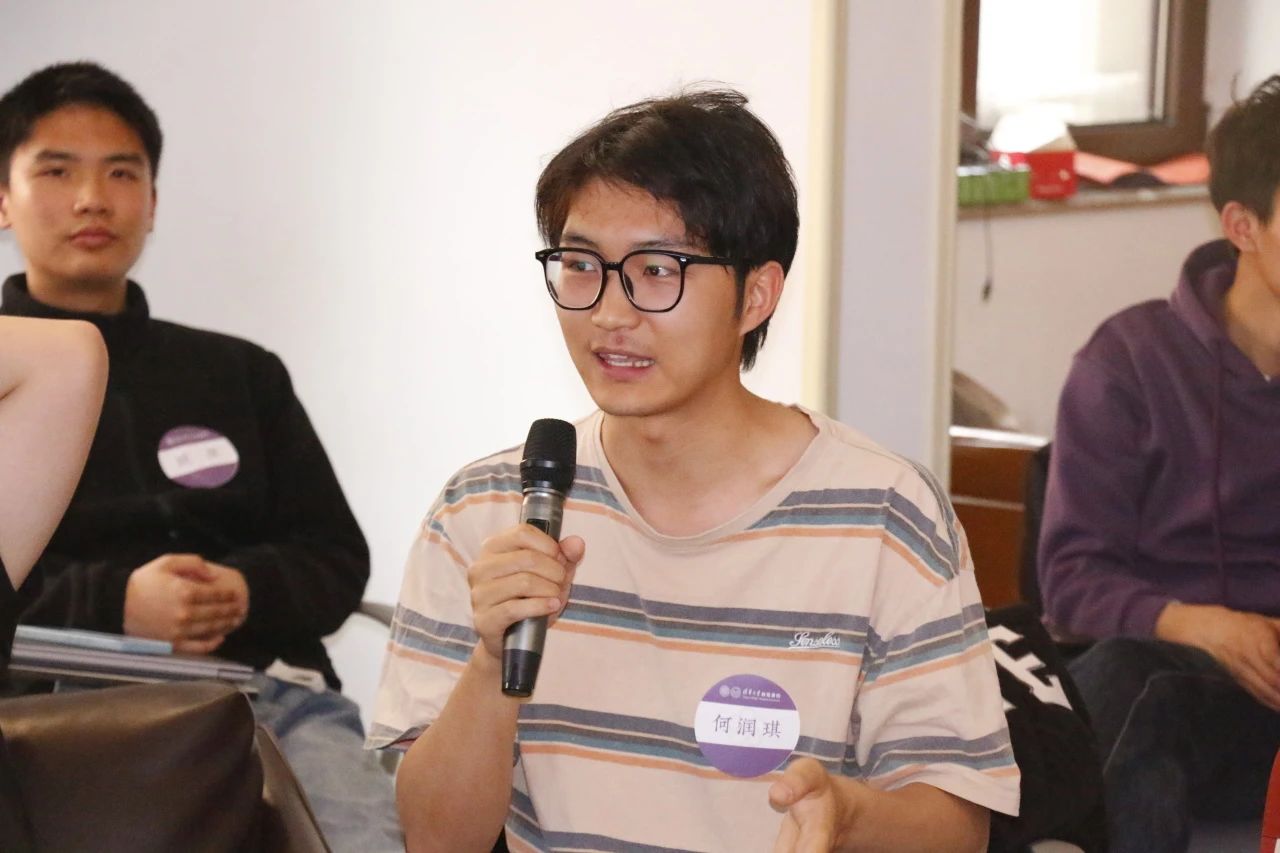
He Runqi
Lu Junxiu, a student member of the Southeast Asia Team, was impressed by the importance attached by Singapore and Bali to the concept of sustainable development. On this basis, he reflected on the various approaches different cultures use to manage the relationship between humanity and nature: "Our beliefs may vary, but our collective aim is to achieve harmony." Mr. Mei elaborated on the notion that "different paths lead to the same destination": From the environmental protection efforts of Southeast Asia to the safeguarding of the Acropolis of Athens, it’s clear that the journey of human progress always involves a cycle of building, destruction, re-reflection, and preservation. "Now, introspection is steering us towards sustainable development. Past destruction is undoubtedly regrettable; however, is that the inevitable route for all societies?" Student Wang Sirui highlighted the dedication and practices observed in Bali, reflecting the local community's pursuit of harmonious coexistence between people and nature, people and religion, and among people. "Regarding interpersonal relationships, traditional culture often serves as a bond. The government of Bali mandates officials and students to wear traditional attire at designated times. While this policy has sparked some controversy, it also serves to unify the community."
Ge Jiani, a student member of the Greece Team, was struck by Greece's dynamic preservation of its history and culture. She observed, "The Syntagma Metro Station displays a lot of cultural relics unearthed right there, transforming itself into a small museum. This approach not only safeguards the relics but also infuses the entire city with a historical ambiance, allowing people to truly sense the city's past." Yan Chenxiang was particularly moved by the aesthetics of the stone columns at the Acropolis of Athens, commenting on how beauty can transcend the borders of countries and cultures. Nevertheless, he mentioned certain barriers—In the old building of the National and Kapodistrian University of Athens, the team was introduced to the history and cultural research on the site by the former headmaster. "It was a unique experience to have the scholar right there, eager to share his pride with you. Yet, the beauty of that moment was somewhat diminished by our inability to comprehend his words due to the language barrier—a true loss." Yan was acutely conscious of the delicacy and complexities involved in cross-cultural exchanges, recognizing that the "language barrier" could easily cause the essence of communication to dissipate like whispers in the breeze. Student Wang Zifei shared the differences between his imagined version of Greece and the reality he encountered on his tour, stating that this "disenchantment" experience could prove to be a valuable lesson gained from this study tour.
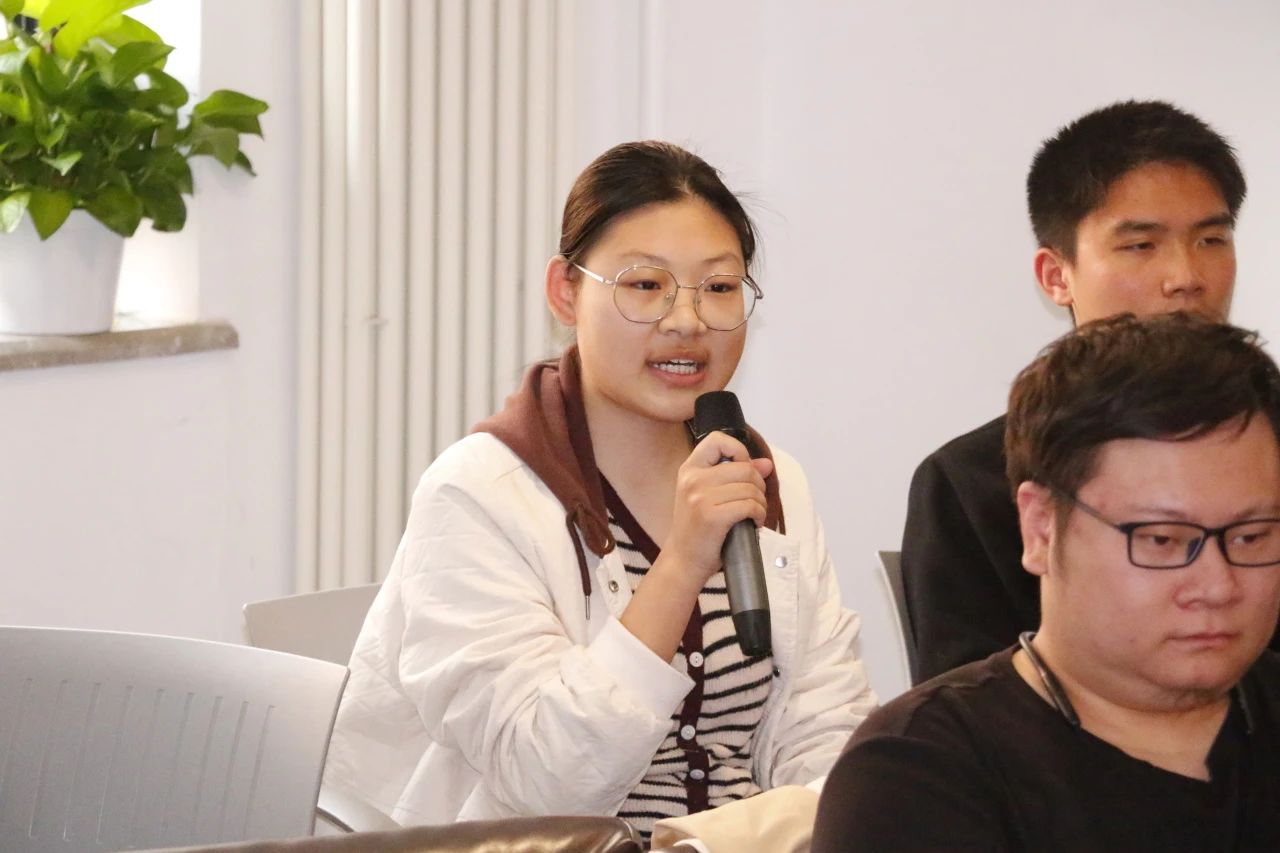
Ge Jiani
Pu Chenhao, a student member of the Italy Team, was profoundly moved by the connection between humanity and history. In Rome, he discovered that the thermae lacked any protective measures. The patterns formed by small stones at the bottom of the bathing pool could be tread upon, touched, and closely examined by everyone. His understanding of foreign history prompted him to reflect on his limited knowledge of his hometown Beijing. He acknowledged his familiarity with Beijing's modern aspects but admitted he lacks acquaintance with its ancient heritage. "I think I need to understand the city humbly from the perspective of an outsider or a student, as I did in Italy. In this way, I can gain a deeper and more thoughtful understanding of its present and past."
Fang Rui, a student from Class 31 of Xinya College, joined the United Kingdom Team. The sense of history he experienced during his visit to Cambridge and Oxford inspired him to ponder the continuity and disruption of history in different societies. He reflected more profoundly on the university's promotion of "global competence," saying, "Enhancing global competence cannot be confined to one location. It requires venturing out to engage with and learn from the cultures of other countries." Mr. Mei responded that the development of cities also follows the "parchment theory": Markings on a piece of parchment cannot be entirely removed, and the accumulated markings are shaped by history. History is continuous, yet what appears to be consistent is, in reality, undergoing fragmentation and renewal with each passing day.
Fang Lihang, a student from Class 32 of Xinya College, shared his thoughts on the practice project he participated in, which was entitled "Studying the Nature of Things to Seek the Truth: The Path to General Education" during the 2023 winter semester. Fang and his companions visited the Songyang Academy and Yingtian Academy in Henan, where they also witnessed a public worship ceremony for primary and secondary school students. Fang engaged in critical discourse with fellow team members about the current commercial development model of ancient academies. They believe that ancient academies can play more roles in cultural inheritance.
Last winter, the teachers and students embarked on extensive travels in every direction—north, south, east, and west—to personally explore the history ingrained in ancient relics. Just as Mr. Mei had hoped, language ignited thoughts on a multitude of subjects, ranging from the land to the relationship between humanity and the divine. Students' minds continued to roam freely across the expanse of the global landscape. In the end, everyone's thoughts inevitably turn back to the homeland, as we use foreign customs as a mirror for our own context. We embarked on a journey of ten thousand miles that led us not just across the globe, but deep within ourselves, sparking visions of our nation's future and fostering a deep comprehension of the academic world's true nature.
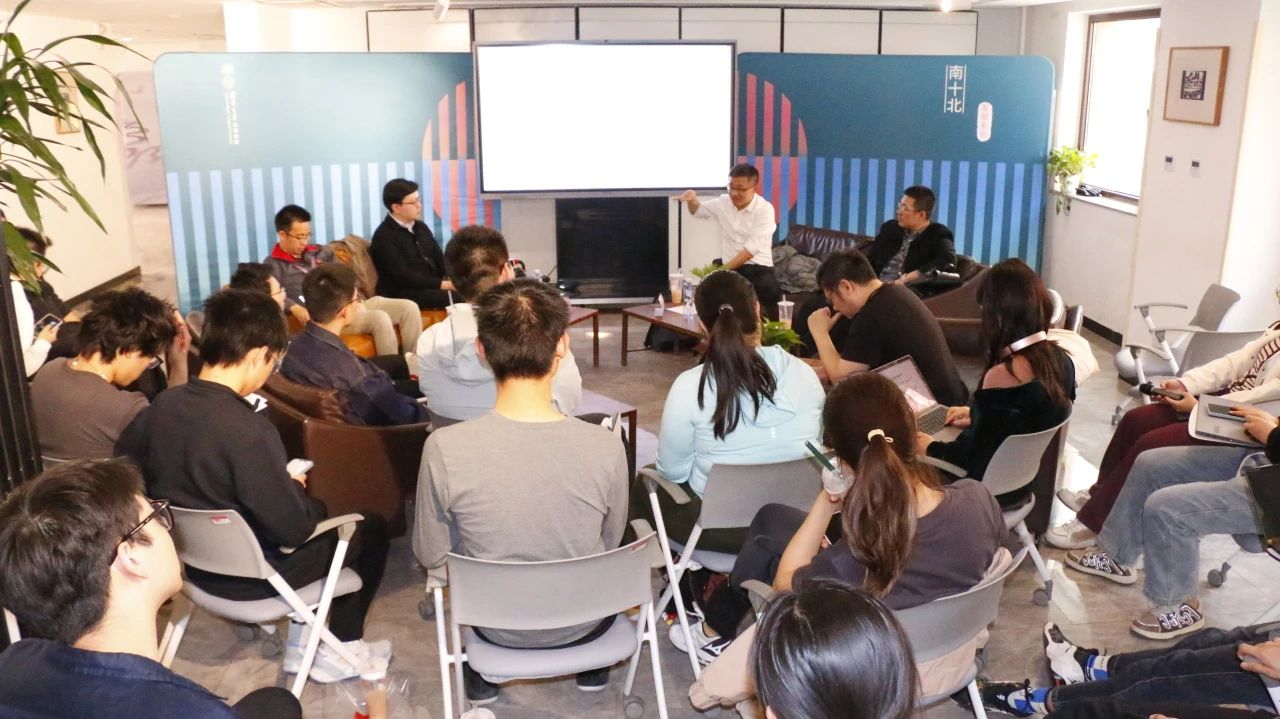
Text by Chen Nuo